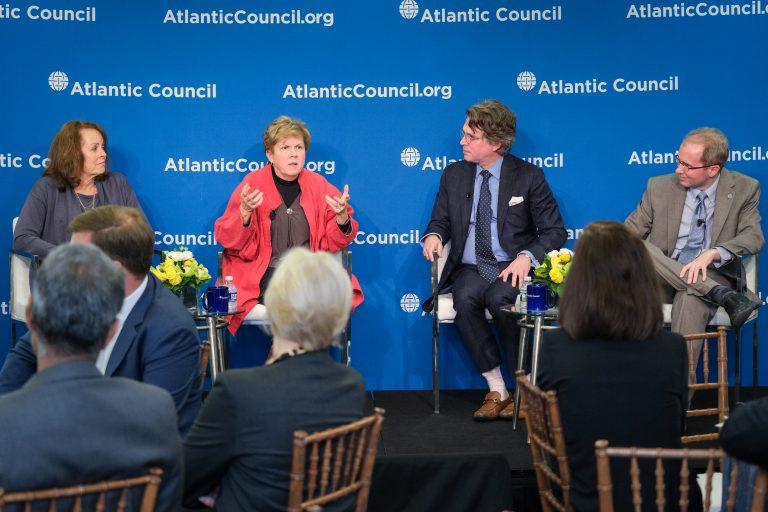By Matthew Putman
On Wednesday (3/11/2020) I participated in a panel discussion addressing global supply chains at the Atlantic Council’s inauguration of a new GeoTech Center and Commission in Washington DC. The GeoTech Center is being launched to harness new and emerging technologies to safeguard communities and foster health and prosperity. At the same time, we will be working to both understand and mitigate the risks of introducing cutting-edge technologies. This is the beginning of a vital conversation.
The effort to quell the spread of COVID-19 adds urgency to this ongoing discussion around technological responsibility and risk. As policy makers, inventors, and scientists in the face of a global pandemic, we must keep communication lines open. It is more necessary than ever to reach an understanding and to combine our efforts across national and political lines.
One of the most important characteristics of the Atlantic Council is that it’s truly a bipartisan organization. The GeoTech Center’s mission, directed by David Bray, is to galvanize a community from diverse technological fields, public service groups, and political parties to take action. Council members include representatives from the Center for Disease Control as well as business leaders and computer scientists. Later this year, we will write a report on our combined findings regarding technology’s impact on the way we navigate future challenges as a global community. The report will assess risk, but also offer a glimpse of the breathtaking inventions that we will see materialize in coming years.
Congressman Michael McCaul began the conversation by expressing his concerns regarding the theft of intellectual property. The dialogue opened, under David Bray’s guidance, into a discussion about problem-solving through technological innovation. Bray blends a refreshing sense of diplomatic intelligence with vast scientific knowledge. All of his remarks displayed his adeptness for measuring risk with a dose of optimism.
I was asked to speak about the possibilities of machine learning, additive manufacturing and nanotechnology in the face of global crises. Clearly, safety in the midst of progress weighed heavily on all of our minds. I delineated the ways AI can build material, diagnostic, and supply-chain solutions quickly and efficiently in the face of a global outbreak—processing data, sharing information to find the best possible solutions, and working over long distances without the need for face-to-face human interaction.
Bray’s balanced optimism, in tandem with a sense of urgency and the determination to avoid destructive actions, propelled us into our examination of the underlying tensions surrounding new technology. We redefined our mission for the decade ahead, together.
Creativity fuels our call to action. Inventors and scientists are first responders in a global crisis—we must innovate with a sense of urgency. As such, we must remain lucid in the face of panic. We must use realism and precaution when confronting humanity’s greatest challenges—but we do not have to accept our fate, whether climate change or the announcement of a global pandemic. Scientists are engineers of the future. It is our role to rise to the challenge with ingenuity, innovation, and hope.
